ET stands for "Extremely Thin," indicating its ultra-slim design. The number 25 represents its height in millimeters.
As Hesai's first lidar to be named after its height, the primary feature of ET25 is its "thinness". Compared to AT128, ET25 is only about half as tall. Why it is necessary for ET25 to adopt such a slim design?
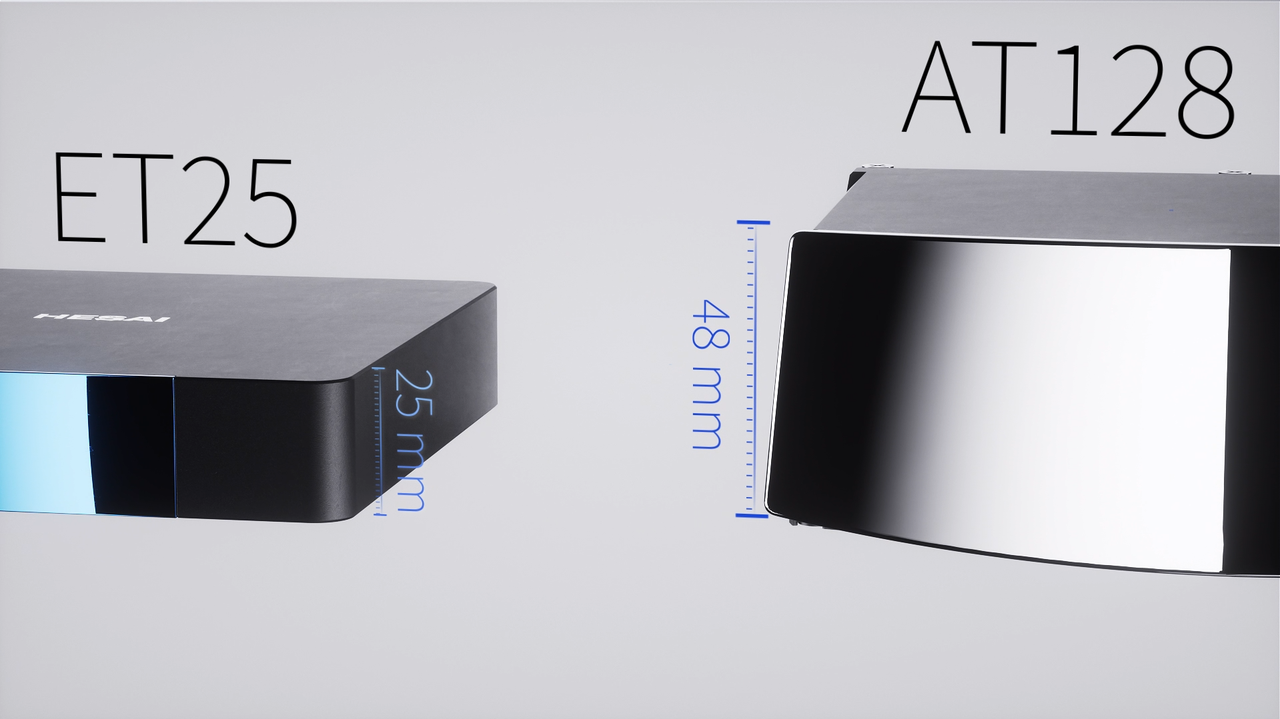
The emphasis on thinness comes from the need for both safety and aesthetics.
First, we would like to introduce a key concept: KOZ.
All sensors integrated on top of the cabin require a certain amount of space between them and the windshield. This space is commonly referred to as the Keep Out Zone (KOZ).
To ensure optimal sensor perception, the ideal approach for handling the Keep Out Zone (KOZ) is typically to enclose the sensors. This means that the cameras, lidars, and other sensors are physically covered or housed to create a sealed area. The enclosure extends from the sensors onto the windshield, as shown in the image below.
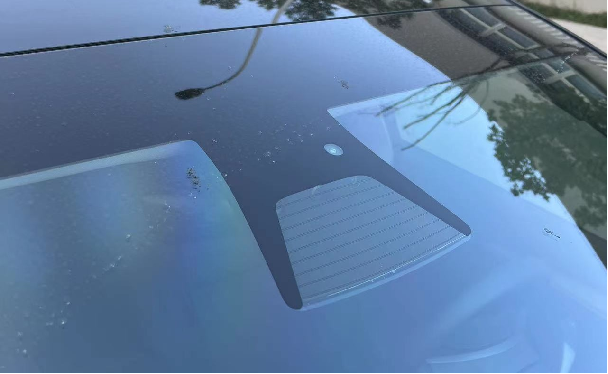
The KOZ of the onboard camera
This design has two significant advantages. First, being "airtight" enables effective water and dust resistance. When cleaning is required, the windshield wipers can perform quick and efficient cleaning. Secondly, special enclosure materials can help reduce stray light interference, thus ensuring the accuracy of perception as much as possible.
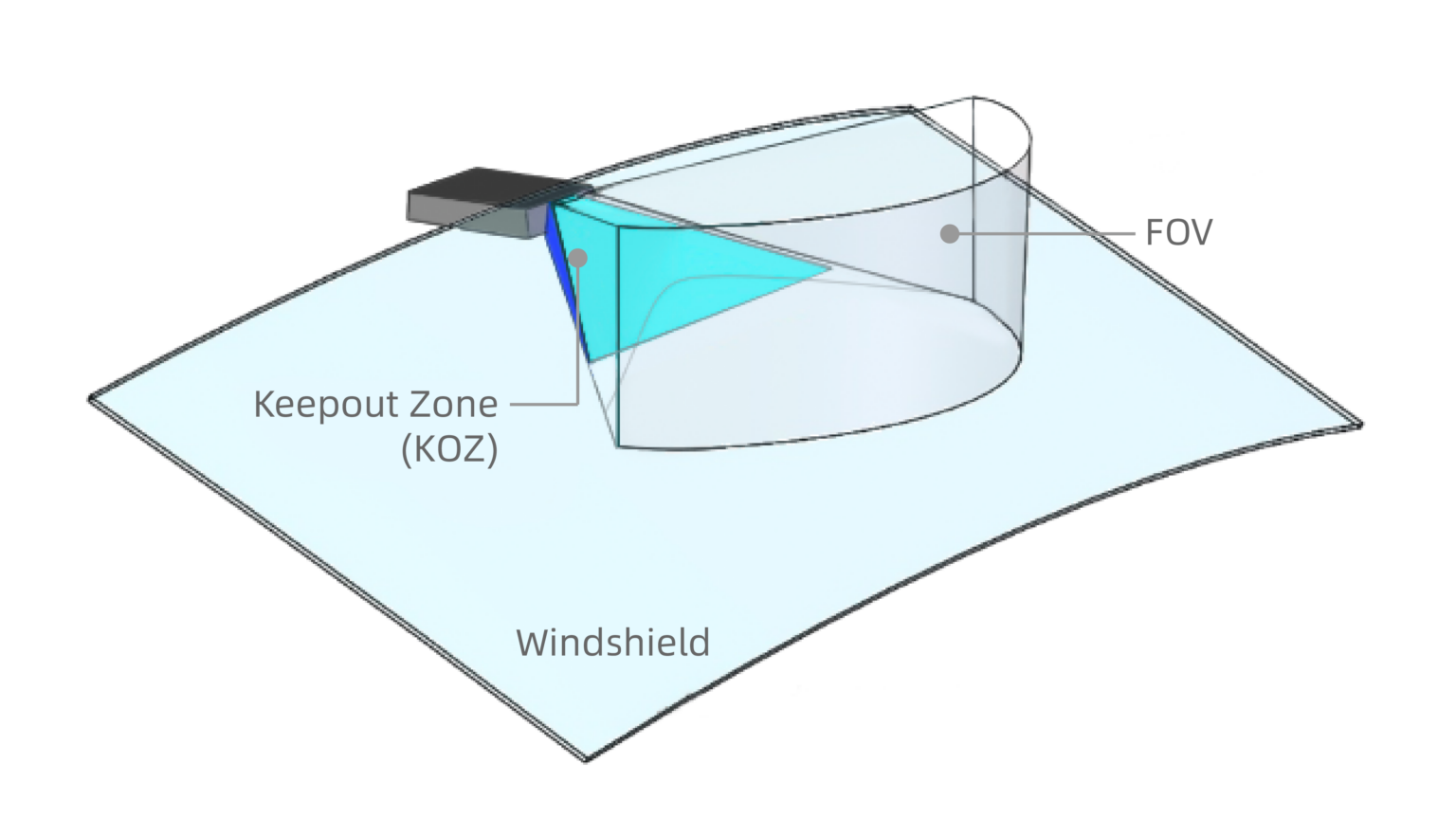
The KOZ of onboard lidar
However, the thickness of onboard lidars is directly proportional to the KOZ's size. For example, the 25 mm ET25's KOZ area is over twice smaller than a 45 mm lidar's KOZ.
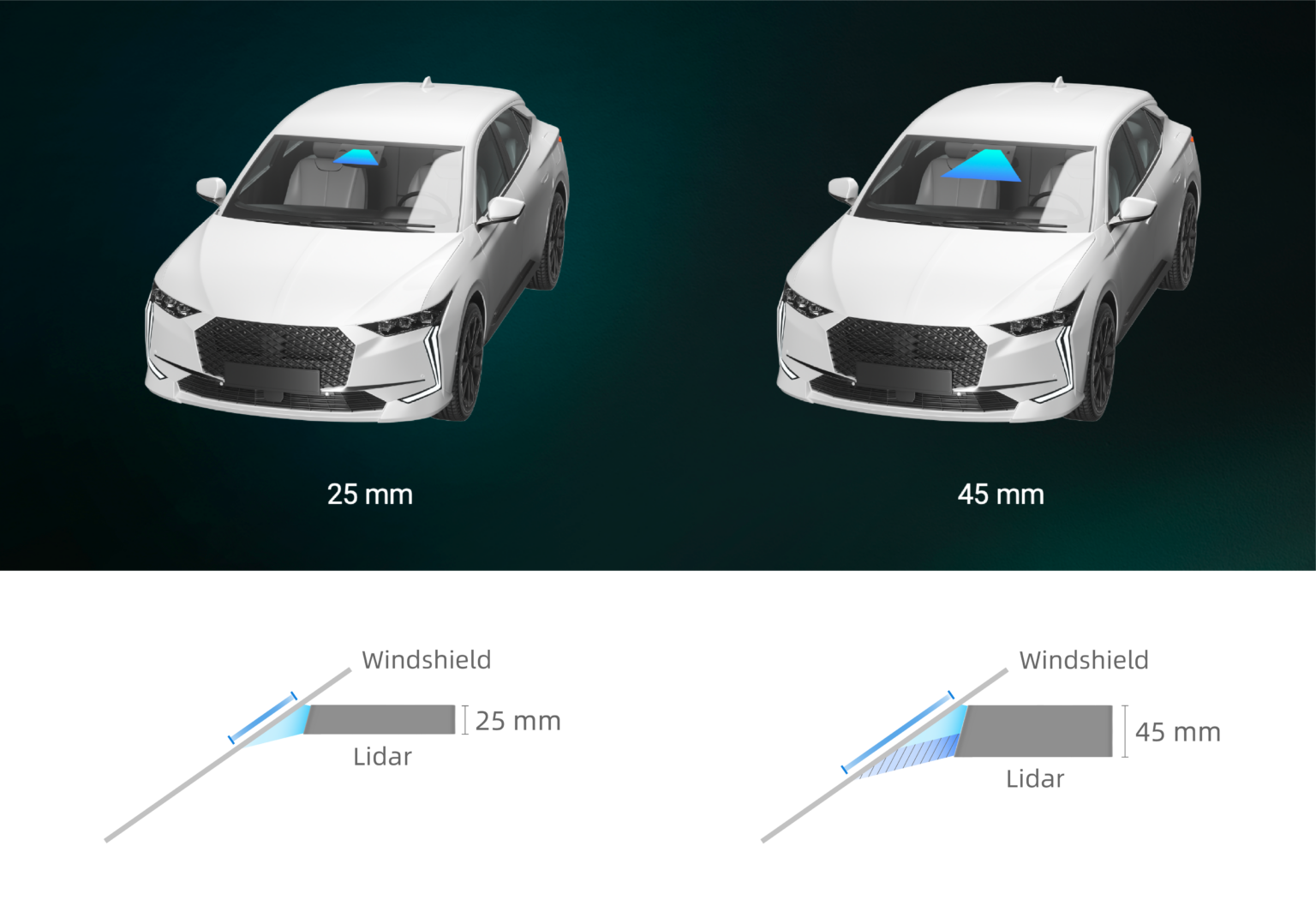
Comparison of KOZ areas for 25mm tall and 45mm tall lidar
Due to the positioning of the sensor bracket above the driver, a larger KOZ size would occupy more space in the overhead cabin area, potentially compromising the driver's visibility and headspace comfort. Particularly, an excessively large KOZ enclosure might partially obstruct the driver's line of sight, thus reducing driving safety.
Furthermore, the KOZ can affect overall vehicle aesthetics. Typically, the KOZ in the cabin should have a bottom width lower than 30 cm. If the KOZ is too large, its shadow on the windshield will also grow, affecting the vehicle's visual appeal.
Therefore, the first step to successfully install a lidar behind the windshield is to create an ultra-thin design.
However, achieving an ultra-thin design while also maintaining high performance is not an easy task.
Having an ultra-thin design means the optical aperture (such as the height of the scanner, lens, and surface window) cannot be too large, which limits the lidar's ranging capability. It's like using a flashlight in the dark: if the aperture is small, only a limited amount of light can pass through, illuminating a small area nearby. However, when the aperture becomes larger, the same power of light can reach farther distances. The same principle applies to lidar, which means that thinness and ranging capability are difficult to coexist.
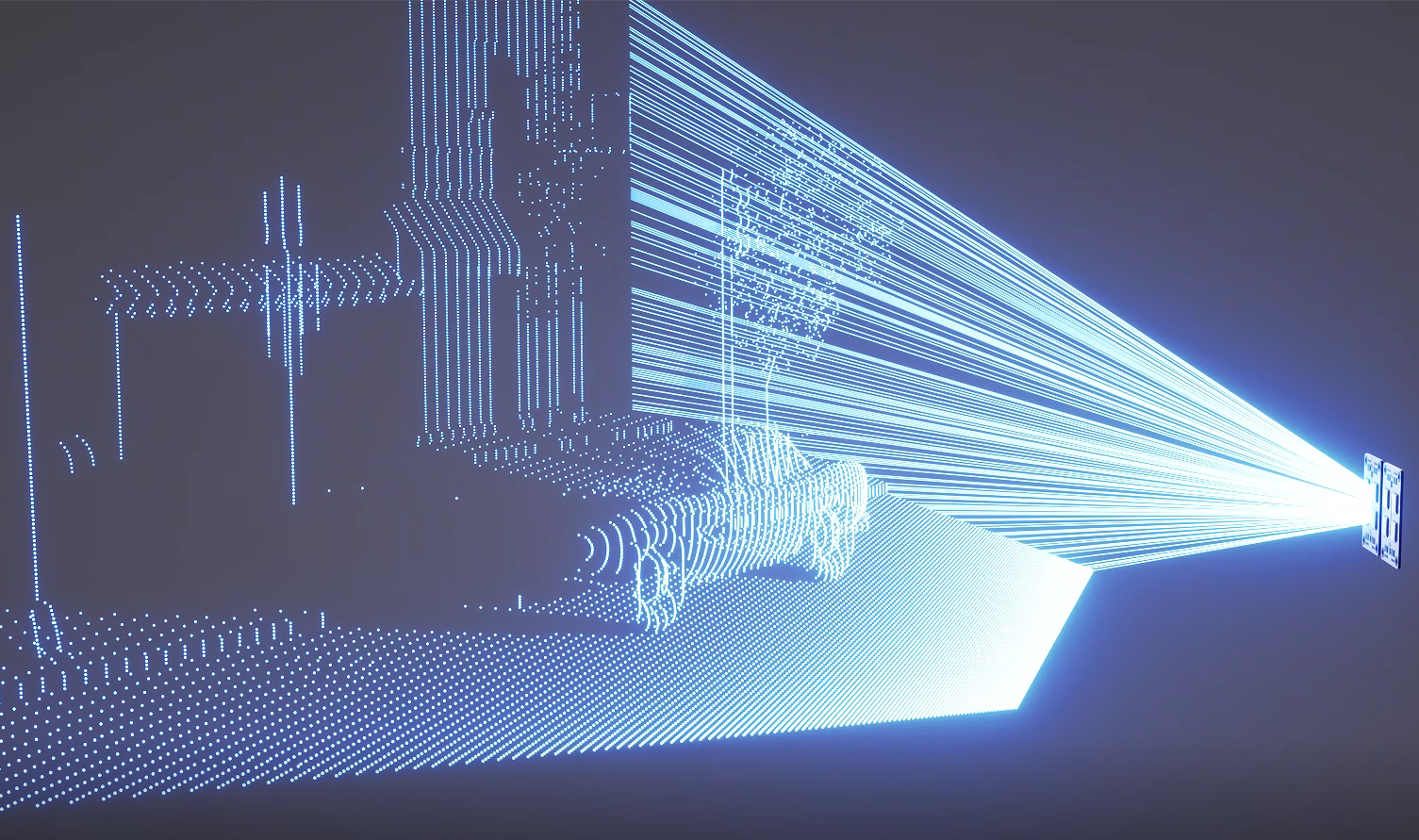
Ultra-thindesign or high performance? ET25 has it all.
Smartphones have become slimmer over the years through highly integrated internal components and advancements in device performance. The same holds true for lidar systems.
ET25 has adopted Hesai's most advanced laser transmit-receive modules, achieving the same field of view (FOV) while delivering more powerful performance. For objects with 10% reflectivity, the ranging capability of the 905 nm lidar has been increased to over 250 m. Even when placed behind the windshield, it can still reach 225 m. The point frequency has exceeded 3 million points per second, with a minimum resolution of 0.05° x 0.05°.
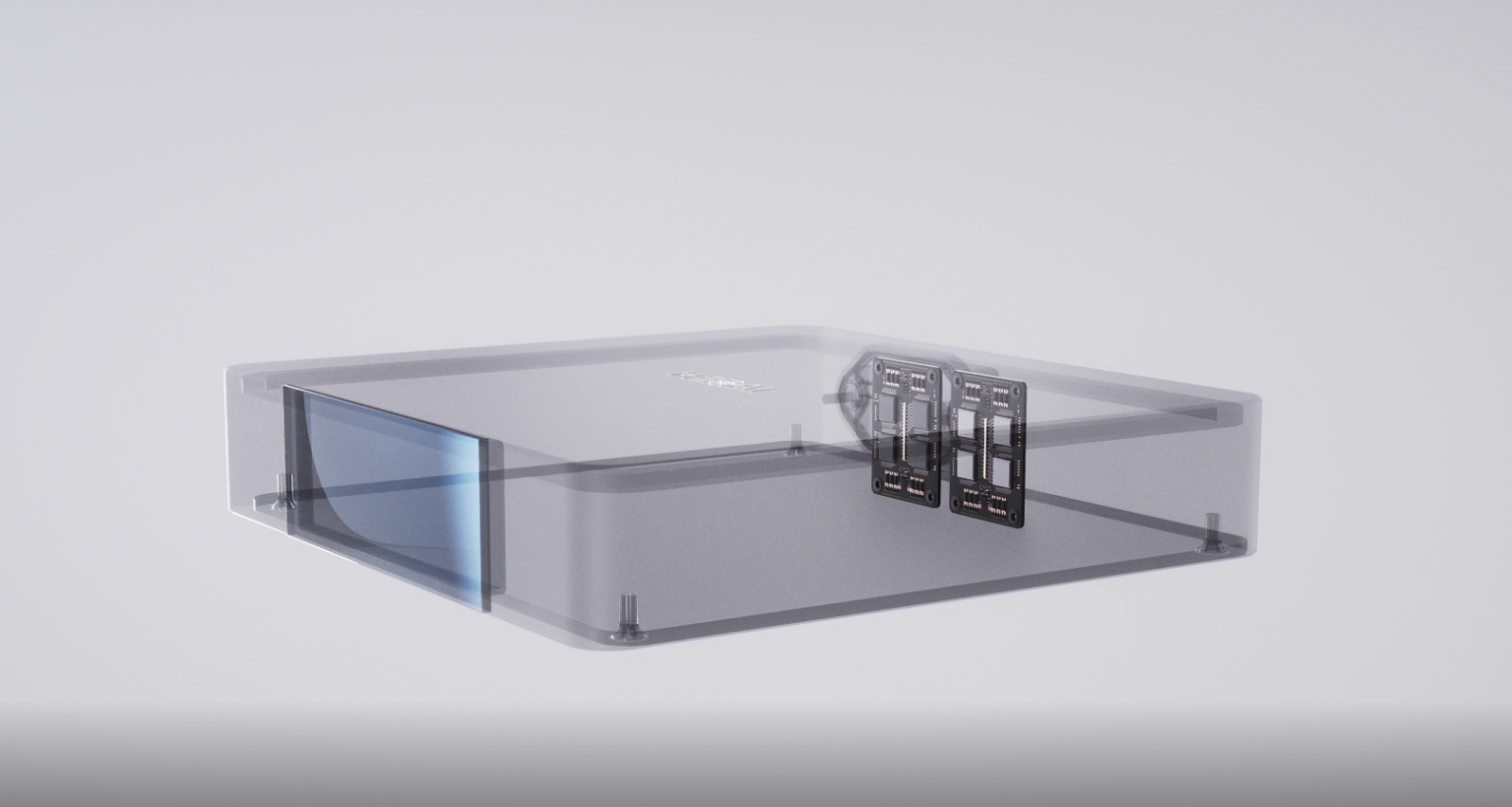
Furthermore, instead of using a traditional internal module layout, Hesai made optimization and design improvements in various aspects such as the scanning modules, transmit-receive modules, and optical modules. Every detail has been scrutinized to create a "minimalist" architecture that enhances the system's flexibility. The height and caliber are almost proportionate, leaving no excess space and pushing the dimensions of each component to their limits.
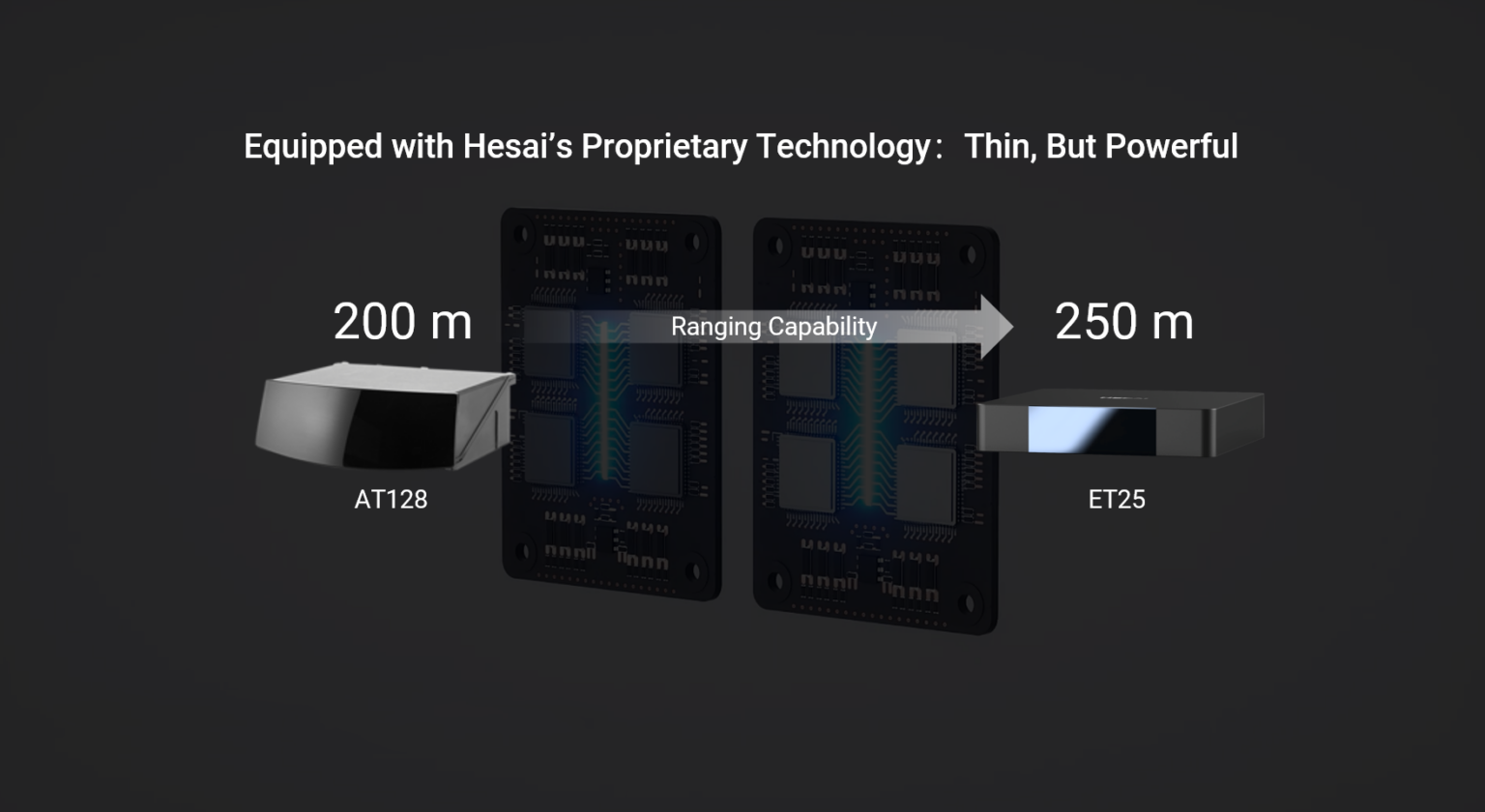
The contradiction between "ultra-thin" and "high performance" has been broken, as ET25 combines aesthetics with performance. This achievement is not only due to Hesai's rapid iteration in lidar technology, but also highlights its deep understanding of the manufacturing process. We look forward to continuous iterations in lidar technology in the future, enabling more flexible solutions to meet the challenges of diverse requirements.
TrendForce 2023 Infrared Sensing Application Market and Branding Strategies
Release: 01 January 2023
Format: PDF
Language: Traditional Chinese / English
Page: 164
|
If you would like to know more details , please contact:
|





 CN
TW
EN
CN
TW
EN












